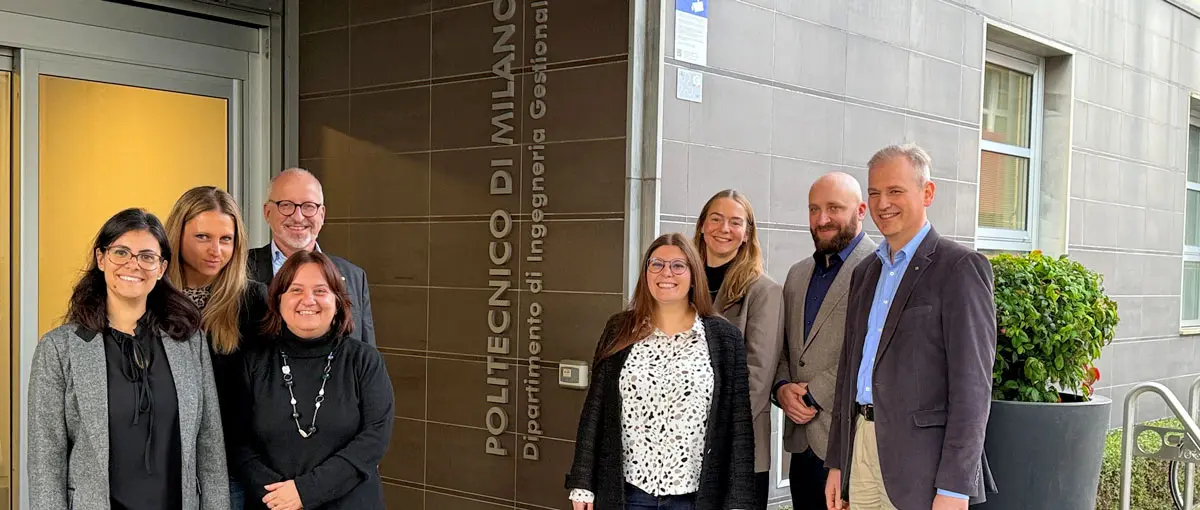ENGAGE 5.0: European project launched for human-centred engineering education

The Department of Management, Economics and Industrial Engineering of the Politecnico di Milano is coordinating a European initiative that combines multidisciplinary skills and digital technologies for Industry 5.0.
On 12 and 13 November 2025, the Department of Management, Economics and Industrial Engineering (DIG) at Politecnico di Milano hosted the kickoff meeting of the ENGAGE 5.0 project – Enhancing Human-Centric Engineering Skills in Learning Factories for Industry 5.0, funded by INDIRE – the Italian National Agency for Erasmus+. The event marked the official launch of the project activities led by Politecnico di Milano and provided an opportunity to present the project’s strategies, roles, and roadmap.
ENGAGE 5.0 involves leading European universities, including the University of Bergamo, Chalmers University of Technology, Politechnika Warszawska, and Kharkiv University of Radioelectronics. The project aims to place people at the centre of engineering education, in line with the key principles of Industry 5.0.
One of the project’s main activities is the use of so-called “learning factories”: training environments that recreate industrial production processes in a laboratory setting in a simplified yet realistic way, allowing students to practice and experiment with processes that would normally be studied only in theory. These environments help students develop not only technical knowledge but also practical skills, teamwork, problem-solving abilities, and familiarity with modern production systems.
ENGAGE 5.0 also seeks to analyse current gaps in engineering skills and develop innovative, integrated training pathways. These pathways combine human-centred approaches with cutting-edge technologies, including Artificial Intelligence, Extended Reality (XR), collaborative robots, and wearable devices, to prepare future engineers to design and manage advanced production systems.
The project’s objectives include:
- defining a new competence framework for human-centric manufacturing;
- creating flexible and multidisciplinary training programmes for engineers;
- building a sustainable EU-wide network of learning factories to share best practices and promote knowledge exchange and educational innovation within Industry 5.0.
The Department of Management, Economics and Industrial Engineering, in addition to coordinating the initiative, will actively contribute to developing innovative training programmes, offering students, faculty, and researchers opportunities to participate in courses, workshops, and international exchanges.
In the coming months, the consortium will focus on analysing skills gaps, defining a shared European competence framework, developing training modules and prototypes of learning factories, and initiating dissemination activities to share tools, results, and guidelines with the academic and industrial communities.